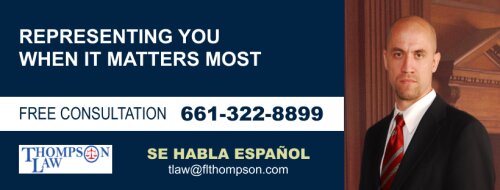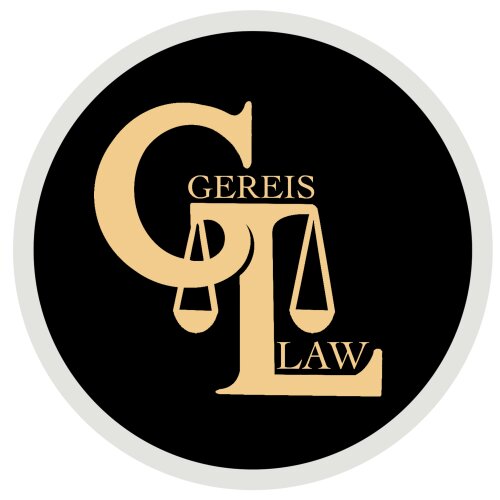Best Bail Bond Service Lawyers in Vermont
Share your needs with us, get contacted by law firms.
Free. Takes 2 min.
Or refine your search by selecting a city:
List of the best lawyers in Vermont, United States
About Bail Bond Service Law in Vermont, United States
Bail bond services are a vital part of the criminal justice process in Vermont. When someone is arrested, a court may require them to post bail as a guarantee they will appear for future court proceedings. If they cannot afford the full bail amount, they might turn to a bail bond service for assistance. The laws and procedures regarding bail bonds in Vermont are different from many other states, making it important for individuals and families to understand the specific regulations that apply.
Why You May Need a Lawyer
Obtaining or posting bail in Vermont can be confusing and stressful. Individuals may need legal help with bail bond services for a variety of reasons, including:
- Understanding eligibility for bail and bond options
- Negotiating conditions or amounts with the court
- Addressing potential violations of bail conditions
- Securing the release of a friend or family member from custody
- Responding to the denial or revocation of bail
- Dealing with legal documentation and guarantees
- Protecting financial interests and assets pledged for bail
- Navigating the implications of skipping bail or failing to appear in court
A qualified attorney can provide guidance, explain legal rights, and offer strategies specific to Vermont's bail system.
Local Laws Overview
Vermont’s bail and bail bond laws are found mainly in the Vermont Statutes Annotated, Title 13, especially chapters covering criminal proceedings. Unlike many other states, Vermont places significant emphasis on personal recognizance releases, where defendants are often released based on their promise to appear in court, without the need to post money or use a commercial bail bondsman.
Key aspects of Vermont law regarding bail bond services include:
- Commercial bail bond agents are allowed to operate, but judges commonly set bail to the lowest amount necessary to ensure court appearance.
- Courts must consider factors like the nature of the alleged crime, a person's history, flight risk, and ties to the community.
- The Vermont Constitution and statutory law limit excessive bail. Some very serious crimes may come with high or denied bail.
- Release conditions may include supervised release, travel restrictions, or regular check-ins with authorities.
- If a defendant fails to appear, the bail can be forfeited and those who posted bond may risk their money or collateral.
- Bounty hunting and bail enforcement are subject to strict regulation in Vermont.
Because local courts have considerable discretion and the laws are nuanced, it is important to understand both the legal requirements and practical procedures when seeking a bail bond service in Vermont.
Frequently Asked Questions
What is the purpose of bail in Vermont?
Bail serves as a guarantee that a person charged with a criminal offense will return for their court hearings. It is not intended as a punishment before conviction.
Can I use a bail bond company in Vermont?
Yes, you can use a commercial bail bond company in Vermont, although many defendants are released on their own recognizance or with minimal cash bail, depending on the judge’s decision.
How does a bail bond work?
A bail bond company generally charges a fee, often a percentage of the total bail amount, and may require collateral. The company posts the full amount with the court to secure the person's release.
Is the bail bond fee refundable?
The fee paid to a bail bond company is typically not refundable, even if the charges are dropped, the case is dismissed, or the defendant is acquitted.
What happens if the defendant does not appear in court?
If the defendant fails to appear, the bail money or collateral can be forfeited, and the bail bond company may seek to recover losses from those who signed for the bond.
Can bail be denied in Vermont?
Yes, for particularly serious offenses or when there is a significant flight risk or threat to public safety, a judge may deny bail.
What if I cannot afford bail?
You can ask the court for a bail reduction or to be released on your own recognizance. Consulting an attorney can help with these requests and ensure your rights are protected.
Are there alternatives to cash bail?
Yes. Vermont law encourages non-monetary conditions of release whenever possible, such as personal recognizance or supervised release, based on an assessment of the defendant’s reliability.
How long does it take to get someone out of jail on bail?
Release times can vary but often occur within a few hours after bail is posted, depending on the facility’s processing procedures.
Do I need a lawyer to use a bail bond service?
While you are not required by law to have an attorney, consulting with one can clarify your options, protect your interests, and streamline the process, especially in complex or high-stakes cases.
Additional Resources
If you are seeking legal advice or support regarding bail bond services in Vermont, the following resources may be helpful:
- Vermont Judiciary: Provides information about local courts, bail processes, and legal rights.
- Vermont Department of Corrections: Offers guidance on jail and pretrial procedures.
- Vermont Bar Association: Helps connect individuals with licensed attorneys experienced in criminal law and bail matters.
- Office of the Vermont Defender General: Assists with free or low-cost legal defense for those who qualify.
- Local bail bond agencies: For direct assistance with posting bail or understanding bond options in your area.
Next Steps
If you or someone you know needs help with bail bond services in Vermont, here’s how to proceed:
- Gather all relevant information, including the location of detention, the case number, and the bail amount set by the court.
- Contact a local criminal defense lawyer or legal aid service to discuss your rights and options. They can offer practical guidance tailored to your situation.
- If appropriate, reach out to a licensed bail bond agent in Vermont to inquire about their terms, fees, and collateral requirements.
- Ask the court or your attorney about possible non-monetary release options or bail reduction motions.
- Follow all legal instructions carefully and maintain documentation for your records.
Seeking professional legal assistance is often the best way to ensure an informed, efficient, and legally compliant approach to bail bond issues in Vermont.
Lawzana helps you find the best lawyers and law firms in Vermont through a curated and pre-screened list of qualified legal professionals. Our platform offers rankings and detailed profiles of attorneys and law firms, allowing you to compare based on practice areas, including Bail Bond Service, experience, and client feedback.
Each profile includes a description of the firm's areas of practice, client reviews, team members and partners, year of establishment, spoken languages, office locations, contact information, social media presence, and any published articles or resources. Most firms on our platform speak English and are experienced in both local and international legal matters.
Get a quote from top-rated law firms in Vermont, United States — quickly, securely, and without unnecessary hassle.
Disclaimer:
The information provided on this page is for general informational purposes only and does not constitute legal advice. While we strive to ensure the accuracy and relevance of the content, legal information may change over time, and interpretations of the law can vary. You should always consult with a qualified legal professional for advice specific to your situation.
We disclaim all liability for actions taken or not taken based on the content of this page. If you believe any information is incorrect or outdated, please contact us, and we will review and update it where appropriate.
Browse bail bond service law firms by city in Vermont
Refine your search by selecting a city.









